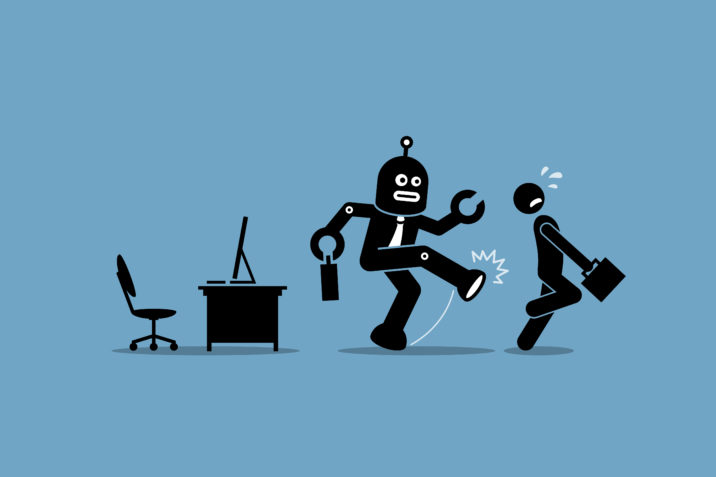Automation is a huge opportunity for businesses, especially in these difficult times
Have you ever asked yourself the question, “will robots take my job?” Blue Prism Chairman and CEO Jason Kingdon explains how robots will not take your job and how they could actually help the economy.
Editorial column by Blue Prism Chairman and CEO Jason Kingdon
Will robots take my job?
Over recent months, concerns have risen about the economic impact of the pandemic, coupled with a rush of related headlines warning of an impending automation apocalypse.
 Concerns that robots might be coming for anyone’s job is not just a modern fear. Indeed, about 500 years ago, Queen Elizabeth I was rumored to have turned down a patent for an automated knitting machine from William Lee because of her alleged concern for the fate of “the unprotected young maidens who obtain their daily bread by knitting”.
Concerns that robots might be coming for anyone’s job is not just a modern fear. Indeed, about 500 years ago, Queen Elizabeth I was rumored to have turned down a patent for an automated knitting machine from William Lee because of her alleged concern for the fate of “the unprotected young maidens who obtain their daily bread by knitting”.
It’s easy to understand those fears, especially given high levels of unemployment and general uncertainty. Nevertheless, I believe there is a long-term, positive case for automation and its transformative potential across all sorts of businesses.
The robotics revolution in manufacturing increased productivity in the 20th century 50-fold, meaning that by the year 2,000 one person in manufacturing could achieve the work of 50 people. On one hand, that initial phase could sound ominous, but there is also an optimistic way to think about this process. It is not about destroying jobs.
That extra capability could help employees ensure the company remains profitable and growing. What was true of manufacturing in the last century is now becoming true for services. Business is facing a period of exponential change.
What is different now is that businesses no longer need to have a sophisticated technical team to introduce these capabilities. Instead, even those without training or a software background can access digital workers that enhance business. These workers can be trained by any business user to do anything, from automating basic tasks, such as payments processing, through to more complex ones.
Yet what is truly different and driving change now is not the impact of COVID, although that is accelerating some of this, but something harder to see, evolving beneath the surface. It is comparable to the early days of the internet, when individual computers were suddenly connected. That allowed all sorts of new communications and business.
What is accelerating intelligent automation now is that this technology is interoperable with existing systems, with the help of digital workers. That means that any company can access an extensive toolbox of the best cutting-edge technologies, such as machine learning algorithms, enabled by digital workers deploying them on top of existing systems.
So rather than thinking conventionally – that robots will inevitably kill jobs – the more ambitious question for any business is: are you using this moment of disruption to think differently about your company and its potential? What could you build with extra digital workers at your fingertips? How could our economy grow? Or do we just want, like Queen Elizabeth I, to stick to our knitting?
Jason Kingdon is Chairman and Chief Executive Officer of Blue Prism, a KeyMark partner and software firm that specializes in robotic process automation (RPA).



